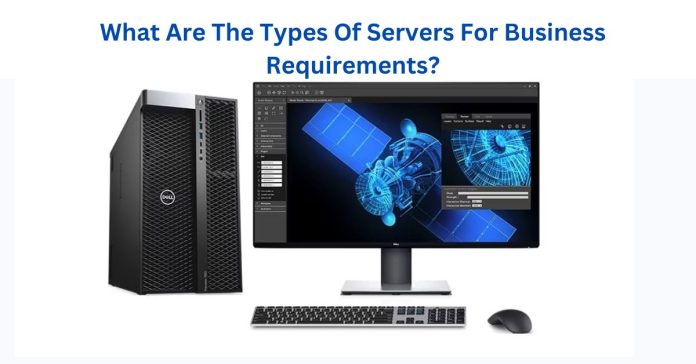Last Updated on April 15, 2024 by Saira Farman
Introduction
When it comes to running a successful business, having the right type of server is essential for achieving success. Businesses are constantly growing and changing, which means that they need more resources to support their operations. One of the most important resources that a business can rely on is a computer server. Servers help to keep your business running smoothly by providing the necessary processing power and storage space. However, choosing the right type of server for your needs can be tricky.
To help make this decision easier, we’ve outlined some key factors that you should consider when selecting a server. First, understand your business needs. What types of applications will be running on the server? How much data will it need to process? Will it need to handle high-traffic traffic? Once you have a good understanding of your requirements, it’s time to start looking at the different types of servers available in the market. If you are looking for the best Refurbished Servers in Hyderabad then look no further beyond our Server Polo.
Types Of Servers For Business Requirements
Server requirements vary depending on the size and scope of your business. Before making a decision about which type of server to buy, it’s important to understand these factors.
First, it’s important to understand the size and scope of your business. If you have a small business, you likely won’t need as many features or capabilities as a company with more employees. Similarly, if your business is growing rapidly, you may need to upgrade your server sooner rather than later.
Second, consider the hard drive storage capacity and cost. You’ll need enough space to store all your data and files, as well as any software that you’ll be using on the server. It’s also important to factor in how much processing power the server will need – this will depend on the type of software that you’re using. Finally, make sure to research different providers and find one that offers servers that fit your specific needs at an affordable price.
Once you’ve selected the type of server that meets your requirements, it’s time to choose an operating system (OS). There are many different OSes available on servers today, so it’s important to select one that is compatible with what you’re using on your computer(s). Additionally, make sure that the OS has been optimized for servers – this will ensure quick performance when running various applications.
To complete installation and set up procedures for your new server, contact customer support services 24/7 for assistance. Also be sure to install appropriate security features such as firewalls and antivirus software in order to protect yourself from online threats. Last but not least, keep in mind that servers can typically be scaled up or down according to your needs – so don’t be afraid to ask questions if you’re not sure how things work!
The Pros And Cons Of Cloud Hosting Services
Businesses today are constantly on the move and need a way to keep their data safe and accessible from anywhere. Cloud hosting services offer businesses this flexibility by allowing them to store their data in the cloud. However, selecting the right cloud hosting service is essential for success. Here, we will outline the key factors to consider when selecting a cloud hosting service.
First and foremost, businesses need to understand the purpose of cloud hosting services. Cloud hosting services allow businesses to access their data from any device or location, making it a great solution for businesses that need to expand their reach beyond their traditional customer base. Additionally, cloud hosting services can be scaled up or down as needed without any additional cost or hassle.
Next, it’s important to consider the key components of each type of server. Each type of server has its own unique benefits and drawbacks, so it’s important to choose one that will fit your specific needs and requirements. For example, web servers are great for creating websites but don’t offer as much processing power as dedicated servers do. It’s also important to consider how reliable and performance-heavy your website will be before making a decision on which type of server is right for you.
Once you’ve decided on the type of server that best suits your needs, it’s time to compare different providers and find one that offers the best overall deal for your business. You can do this by evaluating different aspects such as price, scalability, reliability, support options and other features offered by each provider..
Finally, always remember that security is an essential factor when using cloud hosting services – make sure you choose a provider with robust security measures in place! And lastly remember that customer experience is vitally important when choosing a cloud host – make sure you choose one with responsive support staff who can help solve any issues quickly! This article in the In Rocky must have given you a clear idea of the server.











